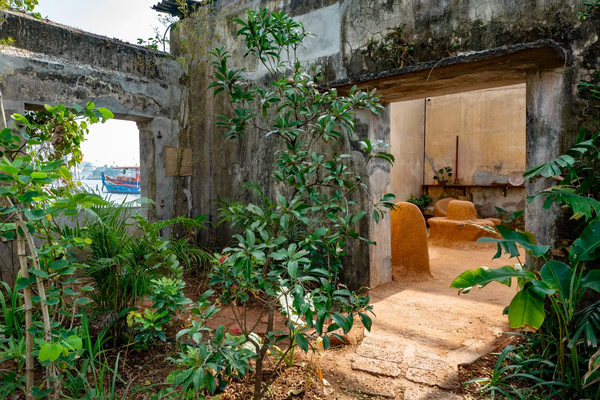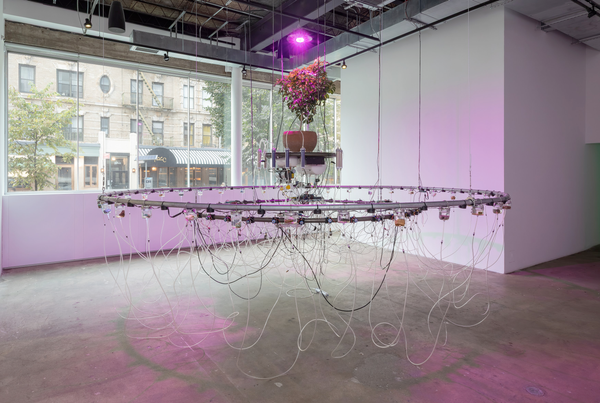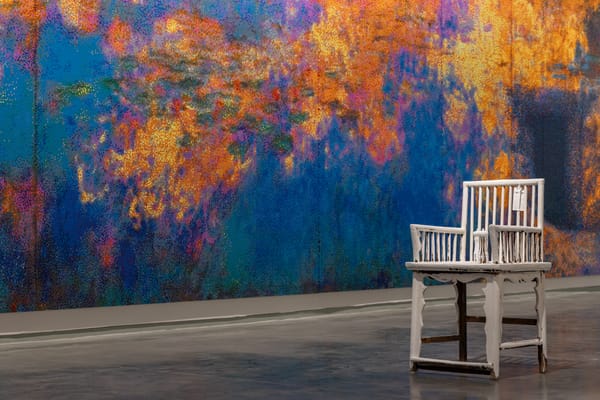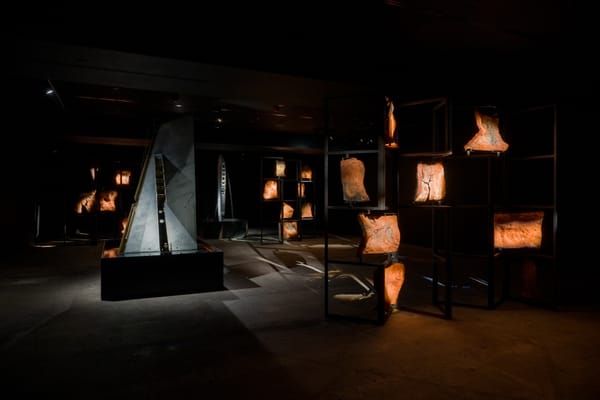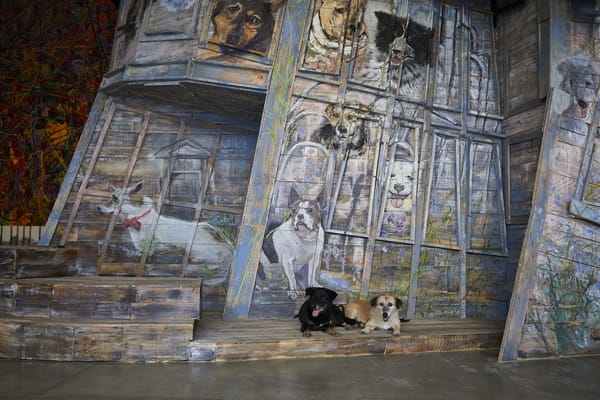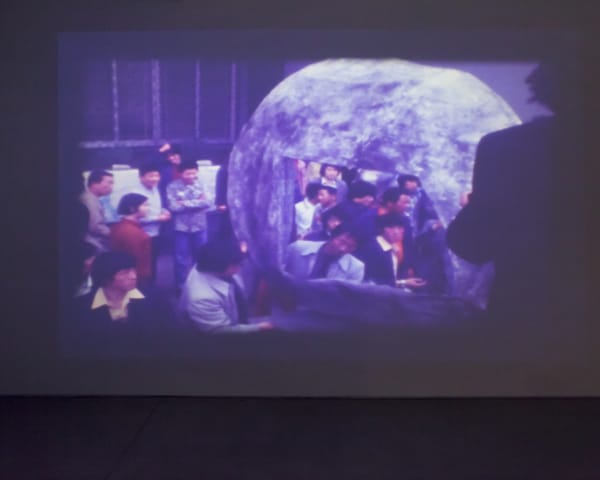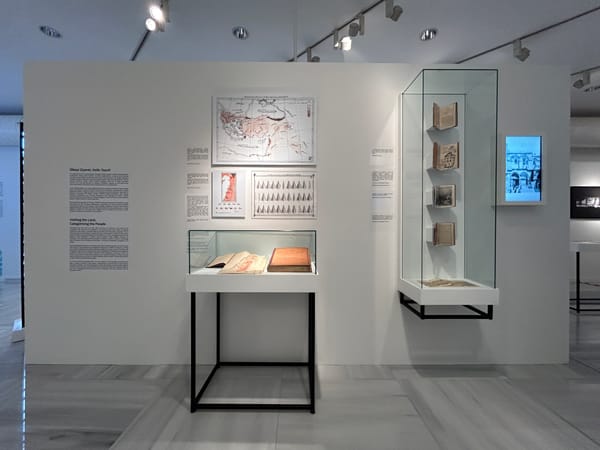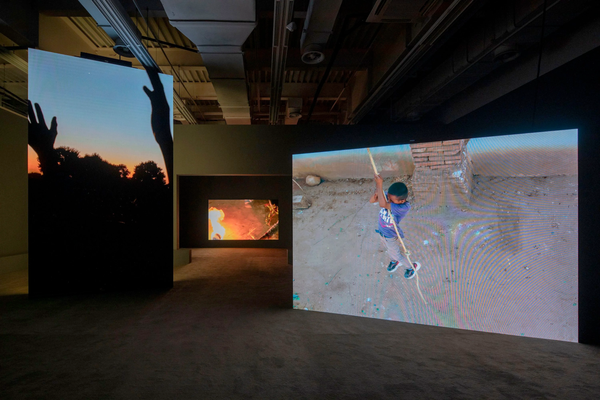Shows
The Disquiet of Chen Wei’s “The Last Night”
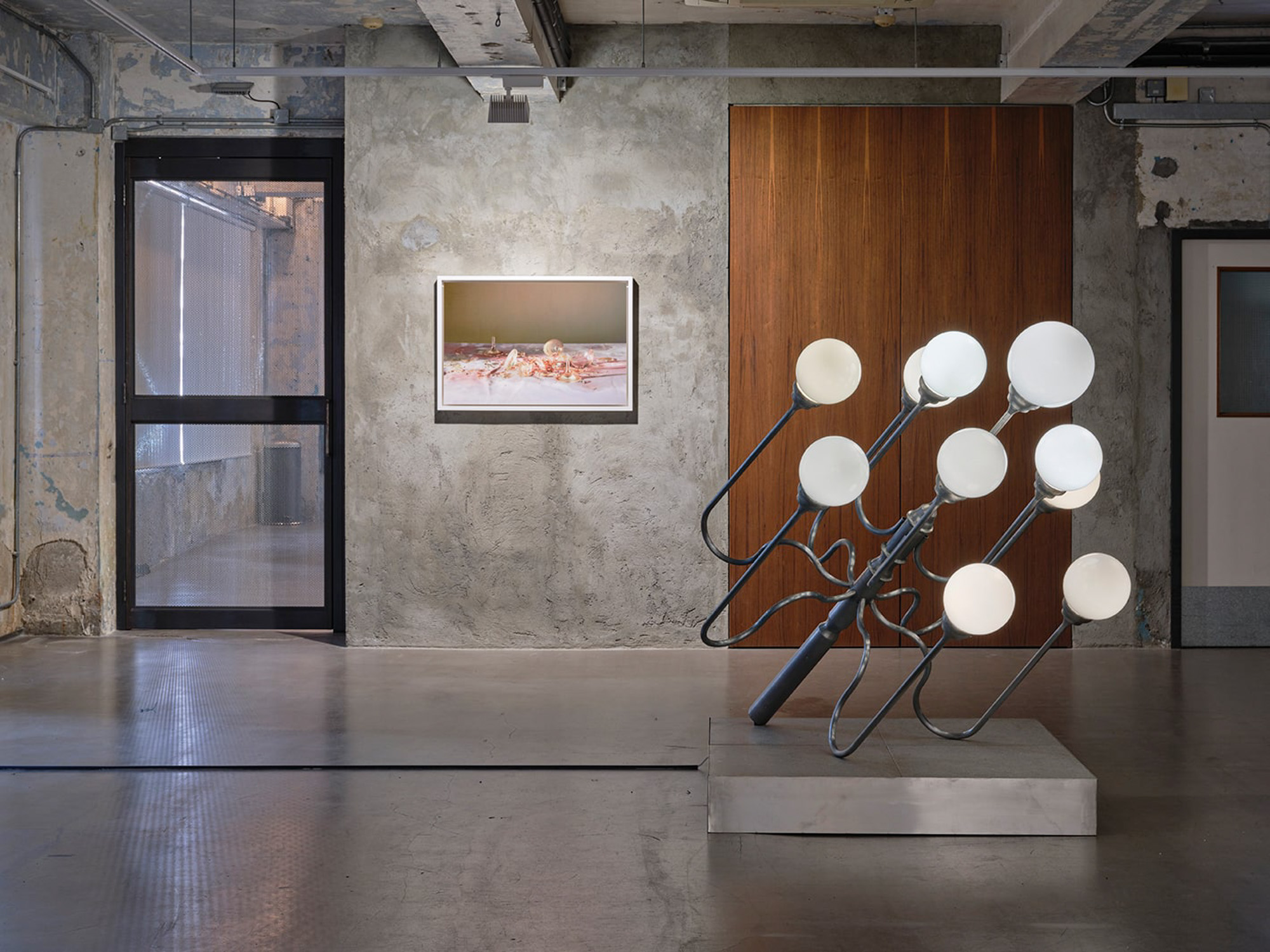

Beijing-based artist Chen Wei is perhaps best known for his staged photographs of atmospheric nightclubs, which envision the neon-drenched interiors as sites of revelry and revelation beyond China’s tightly regulated public spaces. A counterpoint to these dream enclosures can be found in his scenes of abandoned disarray, where heady escapism dissolves into ambivalence. It was this unease that anchored the artist’s solo exhibition at Blindspot Gallery, titled “The Last Night” in reference to writer Pai Hsien-yung’s story about a retiring nightclub hostess.
Setting the scene were tightly framed images of mess, from colorful Billiard Balls (2020) dotted around an overturned table to marbles scattered across the threshold of a partly shuttered storefront, glass glinting on a doormat that drily bids Goodbye (2019). Both works were awkwardly installed below eye level—the former diptych on a wall clad in old-fashioned celadon tiles for the show, the latter in a corner next to the gallery’s own rolled-down steel shutter. Yet drawing nearer does little to dispel the essential mystery of the images, which suggest unfortunate endings but withhold the comfort of causality: we don’t see who precipitated the spill, or who might pick up the pieces. Islands (2019), depicting melting boulders of ice, is most haunting for its preclusion of redress altogether, for unlike the static disorder of Billiard Balls and Goodbye, it registers the inexorable action of time. A hunk of ice is positioned under the striped plastic curtain separating the warmly lit exterior of a cold storage from its frost-fogged interior, followed by a trail of smaller bergs, as if they are escaping the rays that spell their demise; the dark puddles in their wake imply they won’t make it.
It is curious that the photographs belong to a series called New City (2013– ) as they ostensibly portray neither the new nor the city (everything is typically staged within Chen’s studio). Yet it is precisely in their claustrophobic compositions of the archaic and awry that they evince the blend of nostalgia and anxiety that seems to afflict our alienated milieu, for which notions of progress have been compromised by evident failures. Time Shop (2019) features a shabby clock-repair booth filled with asynchronized analogue devices; Tree (2016), from another series, portrays satellite dishes proliferating up a pole like a fungus, pointing to a new ecology of obsolescence. In both images the subject is the central illuminated point in the encompassing darkness, which isolates the scene to an unreachable non-place.
Inaccessibility defines Chen’s imagined settings, which conflate desire with a kind of pseudo-urban dysfunction. This manifests sculpturally in Brilliantly Lit Lights / HK (2021), a life-size segment of a retro ten-globe lamppost, tipped diagonally on a plinth. The decorative zhonghua style is a symbol of aspirational luxury in the Chinese urbanscape; in the gallery, it is reduced to a useless relic, the bulbs blinking an undecipherable code. Likewise, the LED panel Trouble #21082 (2021) is installed facing the celadon-tiled wall, its glitchy transmission perceivable only as flashes of reflected color. Trouble #21083 and Trouble Malevich (both 2021) are turned toward the viewer but their messages are further abstracted, with fleeting lines and blocks of polychromatic light in lieu of slow-scrolling ads. In Chen’s work, yearning is answered by ephemerality and confusion.
An early photograph, Goblets After Dancing (2009), hung close to the lamppost. The image depicts smashed wine glasses on a soiled tablecloth—a dance that ended in destruction. Chen’s club scenes are alluring for their promise of ecstasy; “The Last Night” was poignant for crystallizing the more complicated feelings that set in when the party is over but morning is still far away.
Chen Wei’s “The Last Night” is on view at Blindspot Gallery, Hong Kong, until November 13, 2021.
